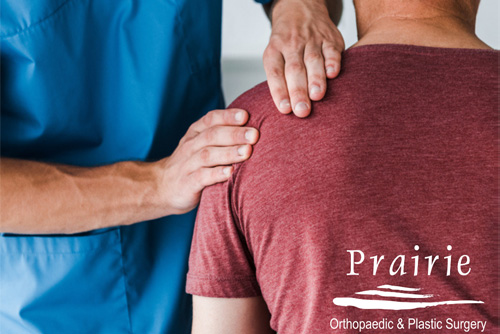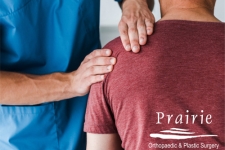
Shoulder Surgery Recovery Tips
After having shoulder surgery, it’s going to take time to get your shoulder back to its normal, pain-free ability. Shoulder surgery can be a fairly invasive procedure, so it’s important to prepare yourself for what to expect and how to recover. Your shoulder can hinder many of your everyday activities — showering, brushing your teeth, getting dressed, driving, etc. The pace at which a patient recovers is different for everyone, so it’s best to have patience and give yourself time. In this blog, we will give you some tips on how to make your shoulder surgery recovery as smooth as possible.
Shoulder Surgery Recovery Tips
- Post-Operative Care
- Most shoulder surgeries are performed as an outpatient, which means that you will be able to go home on the day of your surgery, but not without a long list of precautions and instruction though! Your shoulder will be placed in a sling to immobilize it. Your doctor will also give you instructions on wound care and medications. Be prepared to keep your shoulder still and apply ice packs to help reduce the swelling and pain for the weeks
- Wearing a Sling
- It is very important to wear your sling as prescribed by your A sling will help keep the shoulder still, reduce pain and swelling, and aid in the healing process. Most likely, you will need to wear the sling for four to six weeks following surgery. You will gradually be able to wean off the sling and go for longer periods of time without it. All in all, the timeframe at which you no longer have to use a sling will entirely depend on the type of procedure you had and your personal healing process.
- Resting
- This is one of the most important shoulder surgery recovery tips. Give yourself time to heal! Take this time to rest, which means taking time off of work and daily activities. After surgery, you'll likely be anxious to start using it, but you should refrain from any strenuous activity or exercise that could put stress on the Not resting and healing properly can lead to many other unwanted complications.
- Physical Therapy
- In the weeks following surgery, you will likely need to attend physical Physical therapy helps restore shoulder range of motion, strength, and stability. The exercises will start as gentle and then get harder as your shoulder continues to heal, but nevertheless, be prepared for some intense shoulder workouts with your physical therapist! The time commitment for physical therapy varies from person to person but typically lasts up to six months. Physical therapy is an important step because it helps you regain strength and speeds up the healing process.
- Returning to Activities
- If you have a more invasive shoulder surgery (such as shoulder replacement surgery), you can expect to take a longer time before returning to your regular activities. Generally, it will take about three to six months for a shoulder replacement patient to return to their everyday With that being said, it is important to listen to your doctor’s advice and not push yourself too hard. This may mean still being cautious when resuming physical activities and job functions, so steer clear of heavy lifting, pushing, or putting too much pressure on your arm. Take things slow and steady in order to heal.
- Ongoing Maintenace
- Even after shoulder surgery recovery is deemed “finished,” it is important to maintain shoulder health with regular exercises and This will help keep your shoulder strong and flexible and could prevent any future shoulder injuries. Ask your doctor or physical therapist for a personalized shoulder exercise routine to follow post-recovery.
Closing Thoughts
We hope that you have found these shoulder surgery recovery tips helpful. If you have any further questions or would like to schedule an appointment, please don't hesitate to contact us at Prairie Orthopaedic & Plastic Surgery at . Our board certified orthopaedic surgeons in Lincoln, NE, Dr. Hurlbut MD and Dr. Byington DO, are here to help you through your surgery process and get you back to your everyday life as quickly as possible. With patience and dedication, you will be well on your way to a successful shoulder surgery recovery.

